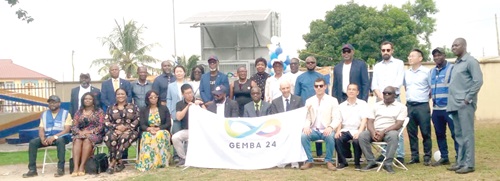International Needs Ghana (INGH), a non-governmental organisation, has officially commissioned a new solar-powered water supply system at the Amrahia Community School to help address the water challenges in the school.
The school, over the years, has been faced with challenges in accessing safe drinking water and depended on an old borehole system that was unreliable and unable to meet the daily needs of the entire student population.
While raising utility costs, the school struggled to provide clean drinking water consistently for the needs of over 400 pupils.
The project was in partnership with the Global Executive MBA (GEMBA) Class of 2024 of the China Europe International Business School (CEIBS).
Lifeline
Speaking with the Daily Graphic after the commissioning, the Executive Director of INGH, Cromwell Awadey, highlighted the significance of the water facility to the school and its surrounding community.
He explained that the system was capable of serving over 400 pupils, providing clean and potable water essential for their health and wellbeing.
“This project is a great relief to International Needs Ghana and the Amrahia Community School. We provide one hot meal a day for the children, and having clean water readily available makes a huge difference,” he added.
Mr Awadey assured stakeholders that the school had prioritised the upkeep of the facility.
Vision
A member of the GEMBA 2024 cohort, Zakaria Boughalem, said the project was part of the cohort’s environmental, social and governance (ESG) agenda.
“A few months ago, we knew we would travel to Africa and we wanted to come already having made an impact.
We decided to start with an ESG project before discussing business. Providing this water pumping station is our way of supporting education and community health,” he added.
He acknowledged the contribution of partners who provided their support to make the initiative possible.
CEIBS commends GEMBA
The Director of CEIBS Africa, Prof. Gordon Adomdza, applauded the initiative as a clear example of how environmental, social and governance, principles could be used to drive real change.
He said CEIBS was among the first business schools to fully integrate ESG content into its curriculum, research and student-led projects. “ESG is the new CSR,” he said.
He highlighted how students were being trained to become responsible business leaders who could meet global challenges.
Prof. Adomdza pointed to UNICEF data showing that one in 10 Ghanaians still spent at least 30 minutes accessing clean drinking water, with 11 per cent relying on unsafe sources.

